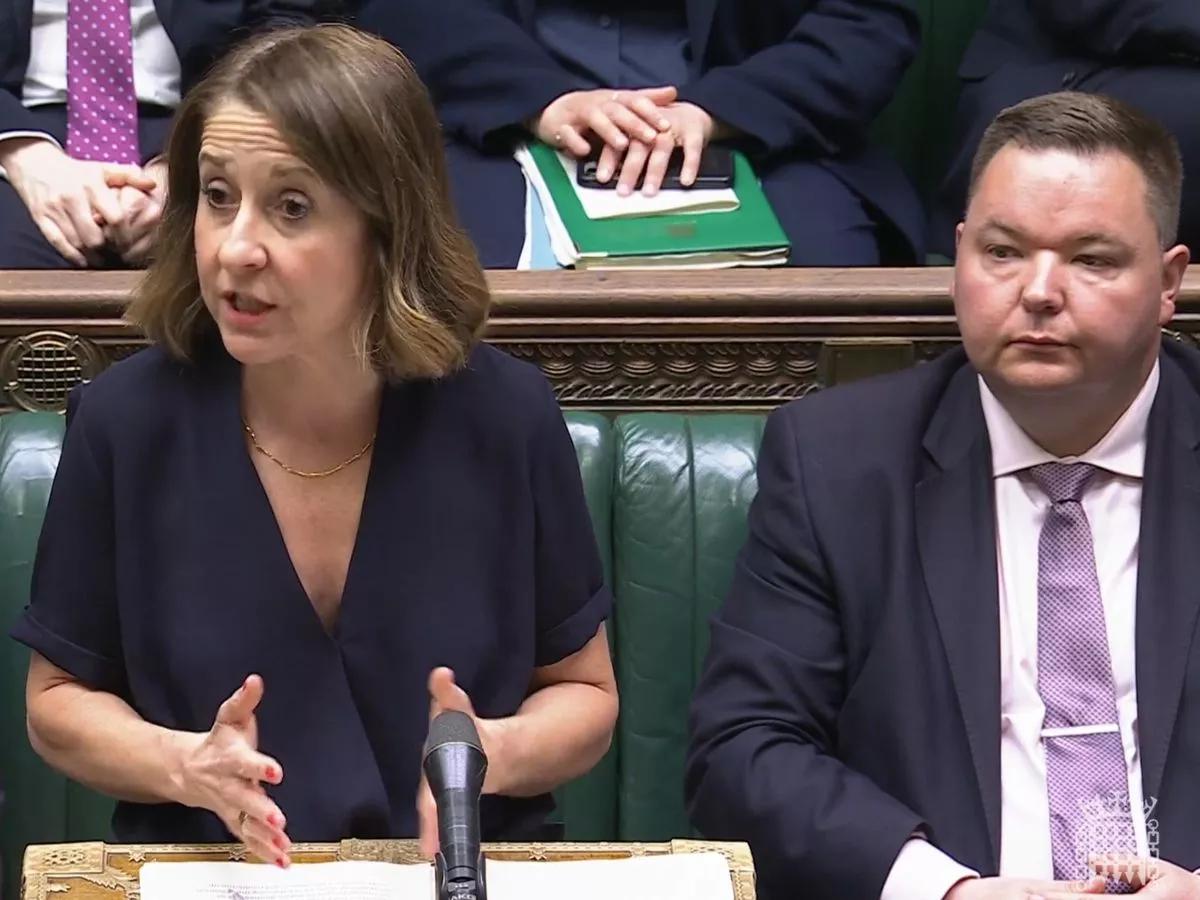By Charlotte Fisher
A Cabinet minister has declined to rule out tax rises amid a warning that the last minute U-turn on welfare reforms will have “financial consequences.” All proposed changes to PIP have been removed from the welfare bill – meaning Labour’s savings will be a lot less than predicted. Pat McFadden said ministers “will keep to the tax promises” in their election manifesto after Rachel Reeves has seen the £4.8 billion predicted savings from welfare reforms whittled away through the Government’s changes to plans designed to keep backbenchers onside. It comes after The Government’s controversial welfare bill was approved by 335 to 260 votes yesterday, meaning the bill will now progress through Parliament but with a key clause taken out. The last-minute concession removes all references to the proposed changes to PIP. A ministerial review of the disability benefit will take place before any changes are made, the Government has confirmed. Work and Pensions Secretary Liz Kendall confirmed that existing claimants on PIP – the DWP’s main disability benefit – will not be affected by changes proposed in the new welfare reform Bill. Sign up to the MEN Politics newsletter Due North here The Prime Minister had a revolt of almost 50 MPs regardless of the changes. The Chancellor of the Duchy of Lancaster told Times Radio on Wednesday there will be “financial consequences” to the decision, and he indicated that would be set out at the budget expected in the autumn. Economists at the Institute for Fiscal Studies (IFS) and Resolution Foundation think tanks warned Tuesday’s concessions mean Ms Reeves can now expect no “net savings” by 2029/30 – a key year for meeting her fiscal targets. Mr McFadden told BBC Breakfast he is “not going to speculate” on what could be in the budget, but said ministers “will keep to the tax promises” in their manifesto. Asked explicitly whether he could rule out tax rises, the Cabinet Office minister told the programme: “I’m not going to speculate on the budget. “We will keep to the tax promises that we made in our manifesto when we fought the election last year. But it doesn’t make sense for me to speculate on something where, as I say, there are so many moving parts of which this is only one element.” Ministers have repeatedly insisted Labour will not raise taxes on “working people”, specifically income tax, national insurance or VAT. But Ms Reeves also remains committed to her “iron clad” fiscal rules, which require day-to-day spending to be covered by revenues – not borrowing – in 2029/30. The Institute for Fiscal Studies’ incoming director Helen Miller said: “Since departmental spending plans are now effectively locked in, and the Government has already had to row back on planned cuts to pensioner benefits and working-age benefits, tax rises would look increasingly likely. “This will doubtless intensify the speculation over the summer about which taxes may rise and by how much.” Shadow chancellor Sir Mel Stride said: “Tax rises are on the way to pay for Labour’s mismanagement of the economy. “Hard-working families will have an agonising summer waiting to hear how Rachel Reeves will claw back the cash to make up for the failings of this weak Prime Minister.” Join the Manchester Evening News WhatsApp group HERE Despite the last-minute concessions, a total of 49 Labour MPs rebelled and voted against the legislation, the largest revolt of Sir Keir’s premiership. Overall, the legislation cleared its first parliamentary hurdle by 335 votes to 260, a majority of 75. The changes were announced by minister Sir Stephen Timms to MPs in the Commons, and came after a first round of concessions offered last week did not seem enough to quell the rebellion. Mr McFadden described the wrangling as a “difficult process” but told Times Radio the Government “got to a position where the second reading of the Bill was passed”. York Central MP Rachael Maskell had tabled an amendment designed to halt the legislation, which was backed by 44 Labour MPs. Ms Maskell said on Wednesday the concessions signalled a “change in power between the Prime Minister” and disabled people. She told BBC Radio 4’s Today programme that Tuesday saw “the Bill disintegrating before our eyes”. Ms Maskell said: “Throughout the day, what we saw was a change in power between the Prime Minister and his Government and disabled people across our country, they having their voice at the heart of Parliament, and that’s why I put the reasoned amendment down.” She said she is “glad” the debate was “had in public” and “now disabled people should feel empowered to have their voice at long last in an ableist Parliament”. On Wednesday, Angela Rayner sought to reassure people who had been “scared” about the proposed benefits changes. Speaking to ITV’s Lorraine, the Deputy Prime Minister said: “Anyone listening to your show today, they know that there will be no changes to their welfare. “I want to make sure that people are reassured by that, because a lot of people have been scared about what’s going to happen.”
